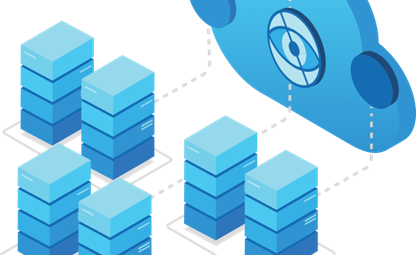14 Mar 2019
Azure's Cognitive Services

Savvy organisations have always known there is more to effective communication than simple verbal communication. In order to reach out to a current customer base, as well as attract new clients, organisations knew they had to appeal to their audience's other senses such as vision and hearing. In addition, a special emphasis on emotions was frequently an integral part of marketing campaigns. An analysis of a successful marketing campaign often uncovered key components such as appealing to one's sense of taste through visually appealing ads or TV commercials, or a carefully crafted music jingle that eventually became almost synonymous to a particular brand or product. Focus groups were also a very popular mechanism that allowed companies to gain an understanding of what the average human being wanted in certain products or services. However they responded on a emotional level, whether a specific ad made them laugh, feel joy, or unfortunately brought up a negative "vibe", a focus group helped organisations learn how to appeal to audiences.
Enter Microsoft Azure Cognitive Services
It's no secret that internet use has turned the business world upside down. Companies found an entirely new audience for their services and/or products. In addition, they were tasked with finding new ways to appeal to potential buyers -- and they did. However, just as slick TV ads faded away as one of the major ways to garner attention, so flashy website images are fading away as well. With the introduction of machine learning and artificial intelligence concepts, the way organisations will connect with their audiences, as well as the tools they will use to reach both current and new clients is about to see another major shift.
Microsoft's Azure Cognitive Services is ready to play a key role in this major shift away from traditional methods of appealing to internet audiences. Through the use of intelligent algorithms, Azure's cognitive services will allow organisations to understand human interaction through the web as never before. AI-enabled bots, websites and apps are being developed with an innate ability to interact naturally with users on almost every level, including sight, sound, and natural verbal speech.
Practical Applications
To understand how Azure's cognitive services can help organisations take advantage of this higher level of interaction, it helps to point out some recent advancements in technology and how Azure's cognitive services can offer a new level of service through its intelligent APIs.
Voice Searches - In the past, users typically typed a few cryptic words into their favourite search engine in order to find desired products and/or services. Most SEO efforts centred around that cryptic phrase in the hopes of garnering the user's attention. Now, searches often begin with the phrase, "Hey Siri" or "OK Google", followed by a natural language search phrase. With Azure's cognitive services, organisations can build apps and websites that will understand these natural language searches, even interpreting the voice's emotion in order to provide better service.
Face Authentication - Security is becoming increasingly complex and organisations are continually challenged to provide a safe mechanism through which they can safely interact with customers. Using Azure's Face API allows organisations to accurately verify the true identity of an individual. One such example, Uber, uses the Face API to continually monitor the identities of their drivers, in order to ensure their riders that they are indeed being picked up by a real driver from Uber.
Speech Recognition - Of course, it has been some time since computers have been able to recognise some human speech. Understanding simple verbal input such as a credit card or phone number is commonplace. With Azure's speaker recognition API, understanding verbal interaction is taken to an entirely new level. An obvious use of this API, once again is for security purposes -- helping organisations identify people in order to truly determine if they are who they say they are. However other uses, such as personalising an interaction with a customer, including greeting them by name and perhaps making a comment about the local weather or a recent sports victory, are also on the horizon. In other words, it is becoming possible to have an app interact with a customer much like a service representative would if the customer visited a physical store.
Summary
These examples are just a small sampling of what AI and machine learning is going to do as they turn the world of information technology upside down in the near future. If you would like to know more about leveraging the next generation of computing through Azure's cognitive services, please contact us today!


